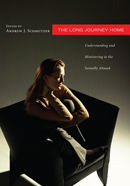A Charge for Church Leadership: Speaking Out Against Sexual Abuse and Ministering to Survivors, Part 2
Read part 1 of this chapter, “A Charge for Church Leadership: Speaking Out Against Sexual Abuse and Ministering to Survivors” as appearing in Pneuma Review Winter 2014.
A Pastoral Perspective: Pastor-to-Pastor
One of the unfortunate lessons of the past few decades is that although sexual abuse within churches and church families has been well hidden, it is nevertheless a serious problem that needs to be addressed. Pastors and other church leaders (e.g., Sunday school teachers, youth leaders, women’s ministry coordinators) need to be prepared to respond to sexual abuse both proactively—by clearly addressing the problem, condemning the practice, encouraging victims to seek help and healing, and providing guidance, resources, and accountability for those who are at risk for abusing others—and reactively—by being ready to respond appropriately, helpfully, and scripturally to victims who come to the church for help. So how can we do that? Where can we turn? And what are some of the challenges along the way?

An excerpt from The Long Journey Home: Understanding and Ministering to the Sexually Abused, edited by Andrew J. Schmutzer.
Several terms, prompted by an asterisk (*), have been defined by pastors, therapists, and theologians that contributed to the book and are included in a select glossary. Please also continue the conversation with Andrew Schmutzer as he answers questions throughout this series.
Some Serious Recommendations for Serious Realities
One of the important lessons learned by the Religion and Violence e-Learning (RAVE) team at the University of New Brunswick is that pastors feel unprepared to respond to those who have been victims of abuse. Our studies among hundreds of pastors have shown that only 8 percent believe that they are well-prepared to respond.14 In our research at seminaries, we have found that the rate among seminary students preparing to graduate is even lower. Additionally, we know that many pastors never address the issue of abuse from the pulpit, and our seminary research suggests that one of the reasons is the fear that if the issue is addressed publicly from the pulpit, victims will come forward and the pastor will be unprepared to deal with the aftermath. This current state has many implications. For example, if abuse is not addressed effectively from the pulpit and in men’s and women’s ministries, in youth groups and appropriately among children, there is the very real danger that victims will simply remain silent while they continue to be victimized or not receive needed care. Such silence will often be interpreted by both the victim/survivor and the broader community as complicity with the acts of violence—or at least an inability or unwillingness to confront the problem of sexual abuse head-on.
Since sexual abuse is closely related to issues of power and authority, the abuser may be able to enforce a “code of silence” that keeps the victim from speaking out. If the abuser is a church leader, the victim may feel that they have a responsibility to protect the church by keeping the abuse a secret. If the abuser is a family member, the victim may feel that to disclose the abuse would be to destroy the sacredness of a marriage or a family unit. Defining, effectively addressing, and condemning sexual abuse by naming it publicly in a sermon are important ways of disempowering the abuser and providing the victim or survivor with the permission they may feel they need to seek help and safety.
Category: Ministry, Spring 2014


